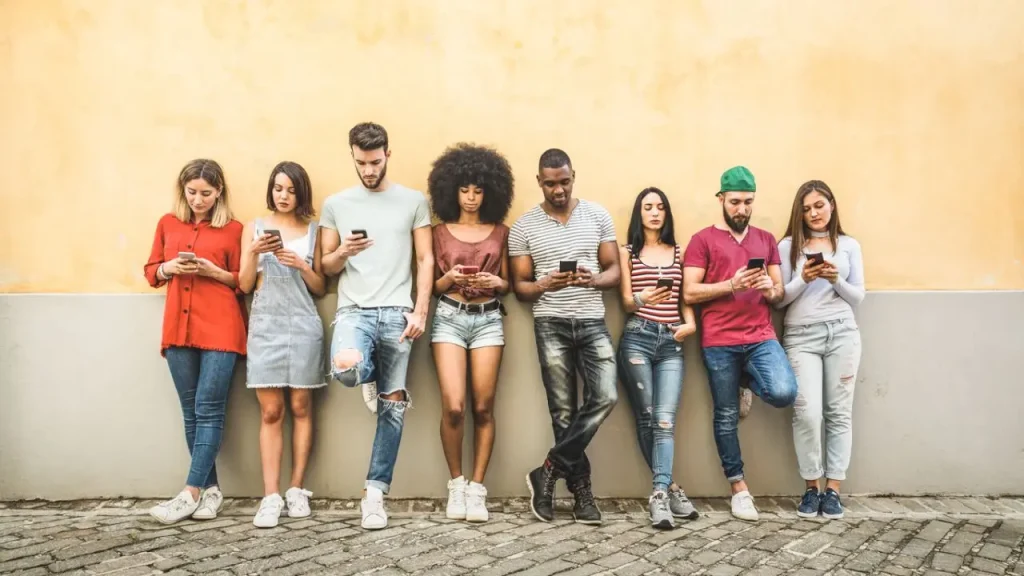In recent discussions about misinformation and media consumption, Generation Z has caught the spotlight as many argue they might be the “most gullible” generation. A recent article posits that despite being the most technologically savvy, Gen Z is particularly vulnerable to misleading information, especially from social media. The article cites various studies, highlighting how young individuals often fail to critically evaluate the news they consume, raising concerns about their ability to discern fact from fiction.
| Article Subheadings |
|---|
| 1) The Gen Z Paradox: Tech-Savvy but Misinformed |
| 2) Social Media’s Role in Spreading Misinformation |
| 3) The Consequences of Misinformation |
| 4) Critical Thinking: A Lost Art Form? |
| 5) Navigating a Misinformation-full World |
The Gen Z Paradox: Tech-Savvy but Misinformed
Generation Z is characterized by its unparalleled access to technology and information. As digital natives, their upbringing has been intertwined with smartphones and social media, making them the first generation to grow up in a connected world. Despite their comfort with technology, researchers are concerned that this familiarity has not translated into effective media literacy skills. A study conducted by Stanford University revealed shocking results—only three out of 3,446 high school students were able to identify a video, initially believed to depict U.S. voter fraud, as originating from Russia. This underscores a significant gap between technological proficiency and the ability to discern accurate information from misinformation.
Social Media’s Role in Spreading Misinformation
According to a recent analysis by Morning Consult, nearly 63% of Gen Z individuals turn to social media for news at least once a week, compared to just 27% and 30% who rely on broadcast and cable news, respectively. This heavy reliance on social media platforms exposes them to a wide range of misleading content and conspiracy theories. The article elaborates on how the intersection of artificial intelligence and social media creates a breeding ground for falsehoods, where misinformation can spread rapidly and convincingly. It suggests that while Gen Z seeks to stay informed, the very platforms they frequent often compromise the integrity of the information they consume.
The Consequences of Misinformation
The ramifications of this phenomenon are concerning. As Gen Z individuals become increasingly enamored with sensational content and eye-catching headlines, they risk falling into echo chambers that reinforce their existing beliefs. Author Catherine Kim points out that this behavior leads to a dangerous feedback loop that not only shapes their perceptions but also contributes to widespread distrust in institutions. The generational differences in media consumption patterns further highlight how Gen Z’s approach to information is considerably different than that of older generations, which tends to rely more on traditional, vetted media sources. As a growing cohort of voters and decision-makers, their susceptibility to misinformation could have far-reaching consequences.
Critical Thinking: A Lost Art Form?
A critical examination of Gen Z’s information assimilation methods reveals troubling insights. Unlike previous generations, who might have sought fact-checking or reliable sources, many Gen Z individuals appear to rely heavily on comments sections or peer discussions within tightly-knit online communities. This often leads to the propagation of misinformation as unfounded health trends or conspiracy theories circulate without scrutiny. The article emphasizes that this troubling trend is not limited to any specific political affiliation; both supporters and detractors of public figures show equal propensity to accept information that aligns with their existing perspectives.
Navigating a Misinformation-full World
In conclusion, Generation Z occupies a unique space in today’s information landscape. With unparalleled access to knowledge, they are simultaneously equipped with tools to discern truth but also vulnerable to the pitfalls of misinformation. As they navigate this intricate web of data, improving media literacy and critical thinking becomes essential. Education systems, media organizations, and society at large must collaborate to empower Gen Z to develop robust analytical skills that can counteract the overwhelming tide of misinformation prevalent in current discourse.
| No. | Key Points |
|---|---|
| 1 | Generation Z is highly proficient with technology yet struggles to critically evaluate news. |
| 2 | A significant percentage of Gen Z sources news primarily from social media platforms. |
| 3 | The consequences of misinformation lead to a distrust of institutions and confusing narratives. |
| 4 | Gen Z often relies on informal sources and community discussions rather than verified information. |
| 5 | Improving media literacy and critical thinking is essential for better information navigation. |
Summary
The increasing reliance of Generation Z on social media for news has raised significant concerns about their ability to critically assess information. As this generation becomes more entwined in a misinformation-laden environment, the call for improved media literacy and critical thinking is more crucial than ever. Understanding the implications of their media consumption habits holds significant weight for the future, as these young individuals will soon comprise a substantial part of the electorate and workforce.
Frequently Asked Questions
Question: Why is Generation Z labeled as the “most gullible” generation?
Generation Z is often considered “gullible” due to their reliance on social media for news and their inability to critically evaluate the truthfulness of the content they consume.
Question: How does social media impact Gen Z’s view of current events?
Social media exposes Gen Z to a plethora of unverified information and conspiracy theories, complicating their understanding of real-world events.
Question: What can be done to improve media literacy among Gen Z?
Enhancing media literacy through educational programs focused on critical thinking and fact-checking can empower Gen Z to navigate misinformation more effectively.


